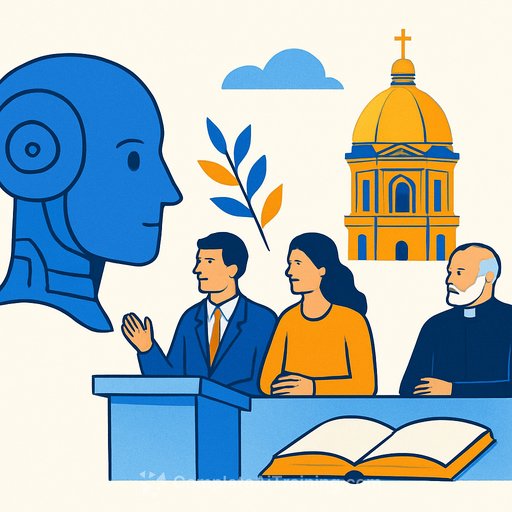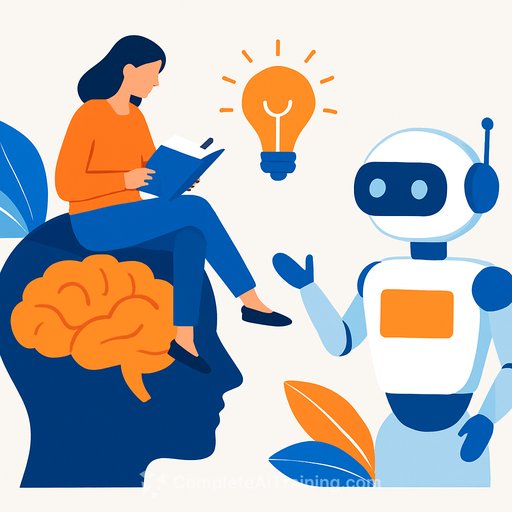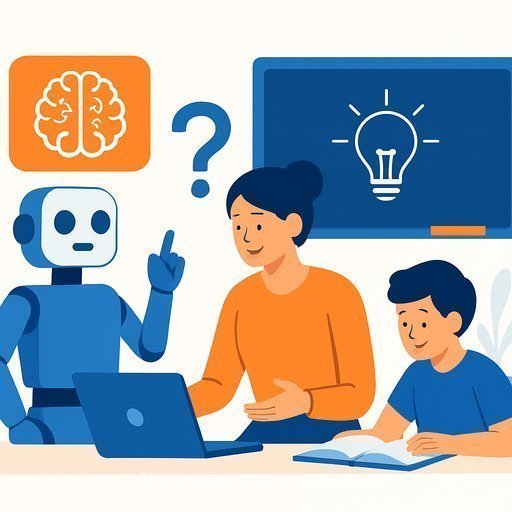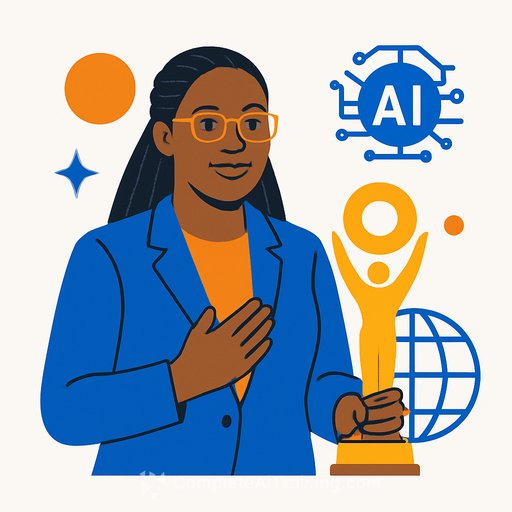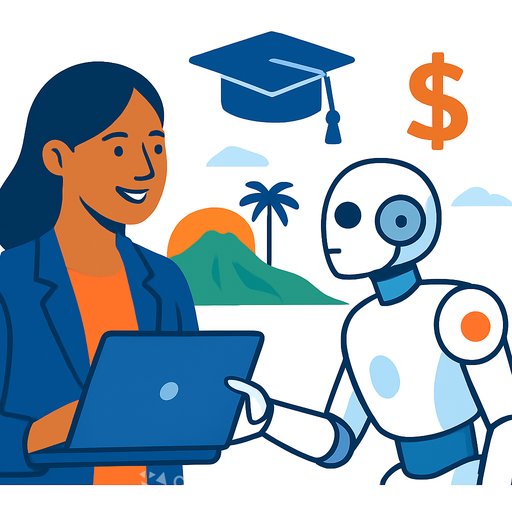How to 'Cultivate the Intellect' in the Age of AI: Insights from Notre Dame's Rome Panel
In a 16th-century library in central Rome, The University of Notre Dame Australia hosted a panel on a question many of us are asking: how do we form intellect and character in an AI-driven environment? The timing was meaningful, coinciding with the Jubilee of the World of Education and the announcement of St John Henry Newman being declared a Doctor of the Church. The Salone Borromini of the Biblioteca Vallicelliana, once a hive for students and scholars, set the tone for a grounded, rigorous conversation. The event ran in collaboration with the Australian Embassy to the Holy See.
The panel cut through hype and asked what actually builds wisdom in an age of instant answers. Broadcasting live from the venue, moderator Colm Flynn said, "For some of our younger viewers, this is called a library… The Australians are taking over this library right in the centre of Rome, hosting a conference on Artificial Intelligence. The difference between knowledge and wisdom-AI doesn't have a soul."
Who was on the panel
- Fr George Bowen, The London Oratory
- Professor Andrew Meszaros, St. John Henry Newman Chair, Pontifical University of St. Thomas Aquinas (Angelicum)
- Sr Catherine Joseph Droste, O.P., Professore Straordinaria of Theology, Angelicum
- Ms Cristina Erazurriz Tortorelli, Communications Vice President, Universidad de los Andes, Chile
- Dr Victoria Lorrimar, Research Fellow, The University of Notre Dame Australia
Moderator: Colm Flynn, Vatican correspondent and broadcaster (EWTN, BBC World, RTÉ Ireland).
Why this matters for educators
Newman argued that education forms the whole person-mind, character, virtue, and spirit. That vision cuts against shortcut culture. With students leaning on tools like ChatGPT, universities have to protect deep learning while equipping graduates to use AI responsibly. The goal: knowledge with judgement, skill with conscience.
Key ideas from the discussion
- Clarify what learning students must do unaided (judgement, synthesis, oral reasoning) versus what AI may support (drafting, summarising, translation).
- Redesign assessment so process matters: iterative submissions, viva voce, in-class creation, and evidence of thinking steps.
- Teach AI ethics early and often: bias, privacy, intellectual honesty, and human accountability for AI-assisted work.
- Build AI fluency for staff and students: prompt craft, verification habits, source-checking, and citation of AI use.
- Protect formation: seminars that train attention, character, and dialogue remain non-negotiable.
- Renew libraries as learning labs: primary sources, curation, and quiet spaces for focus.
- Adopt clear AI use policies that are simple, consistent across courses, and reviewed each term.
- Keep human mentorship central: feedback, moral discernment, and vocation-oriented advising.
What universities can do now
- Publish a one-page AI policy per program with examples of permitted and prohibited use.
- Shift part of grading to oral defenses, whiteboard problem-solving, and reflective memos.
- Require AI-use disclosure statements on major assignments.
- Offer faculty micro-trainings on prompt craft, verification, and assessment redesign.
- Embed case studies on AI and professional ethics across disciplines.
- Create student AI clinics staffed by librarians and learning advisors.
- Audit first-year courses for attention to foundational skills: logic, writing, source evaluation.
Newman's relevance-now
Newman held that education is more than credentials; it is ordered to truth and virtue. That stance gives leaders a compass as AI changes how we research, write, and teach. Tools can speed tasks, but formation takes time, community, and conscience.
Links and further reading
- UNESCO: Guidance on Generative AI in Education and Research
- St John Henry Newman: The Idea of a University (overview)
For curriculum leads and PD coordinators
If you're building staff development around AI, start with a small, repeatable training track and clear assessment templates. Keep faculty workload in view and iterate each term. For curated AI learning paths by role, explore our courses by job.
The event drew a diverse audience and surfaced productive debate on the future of higher education, the role of universities, and the continued relevance of Newman's vision. It reaffirmed Notre Dame's commitment to promote conversations that keep intellect, ethics, and human flourishing at the center of academic life. Watch Colm Flynn's live interview on Sky News.
Your membership also unlocks:

